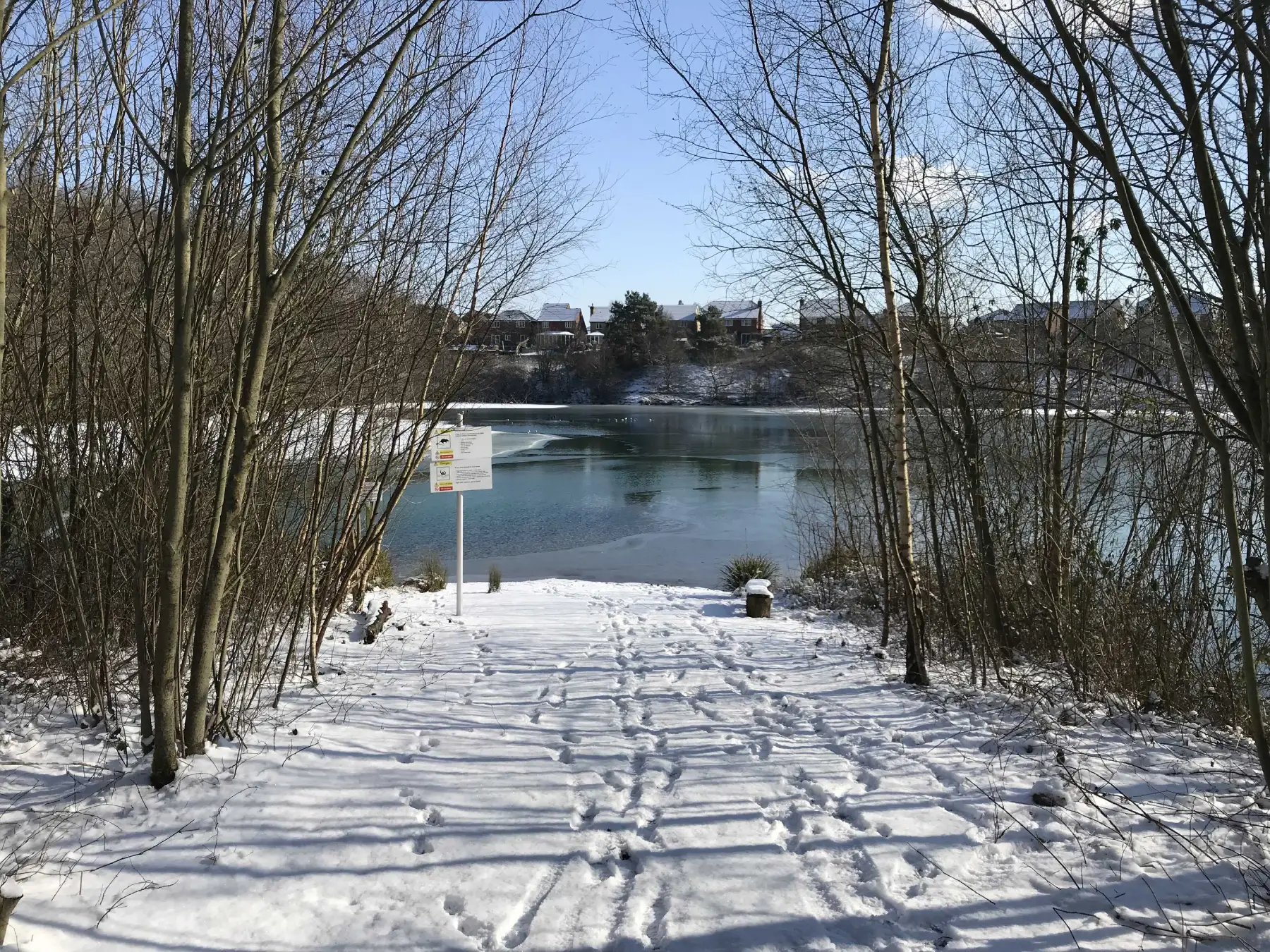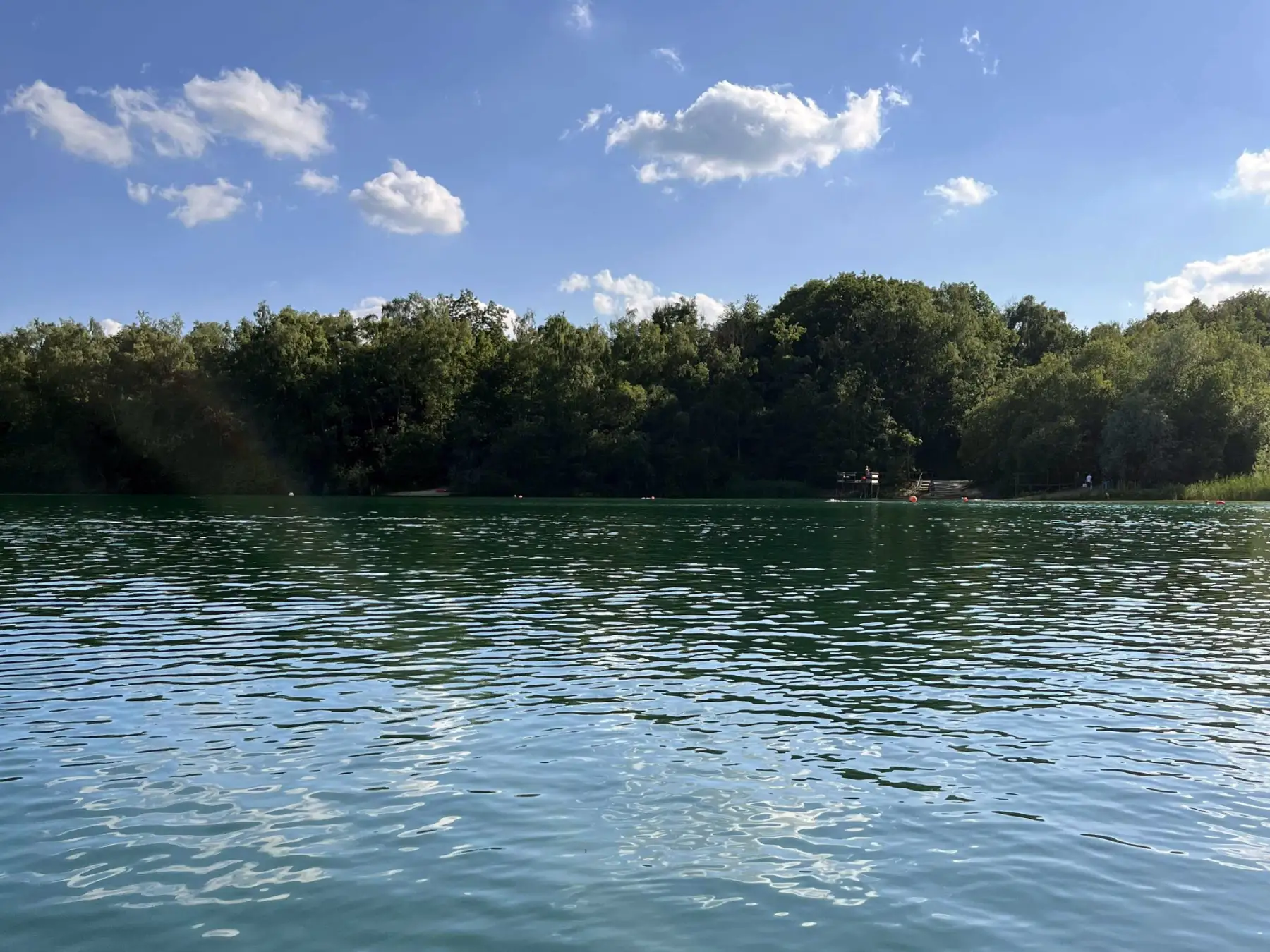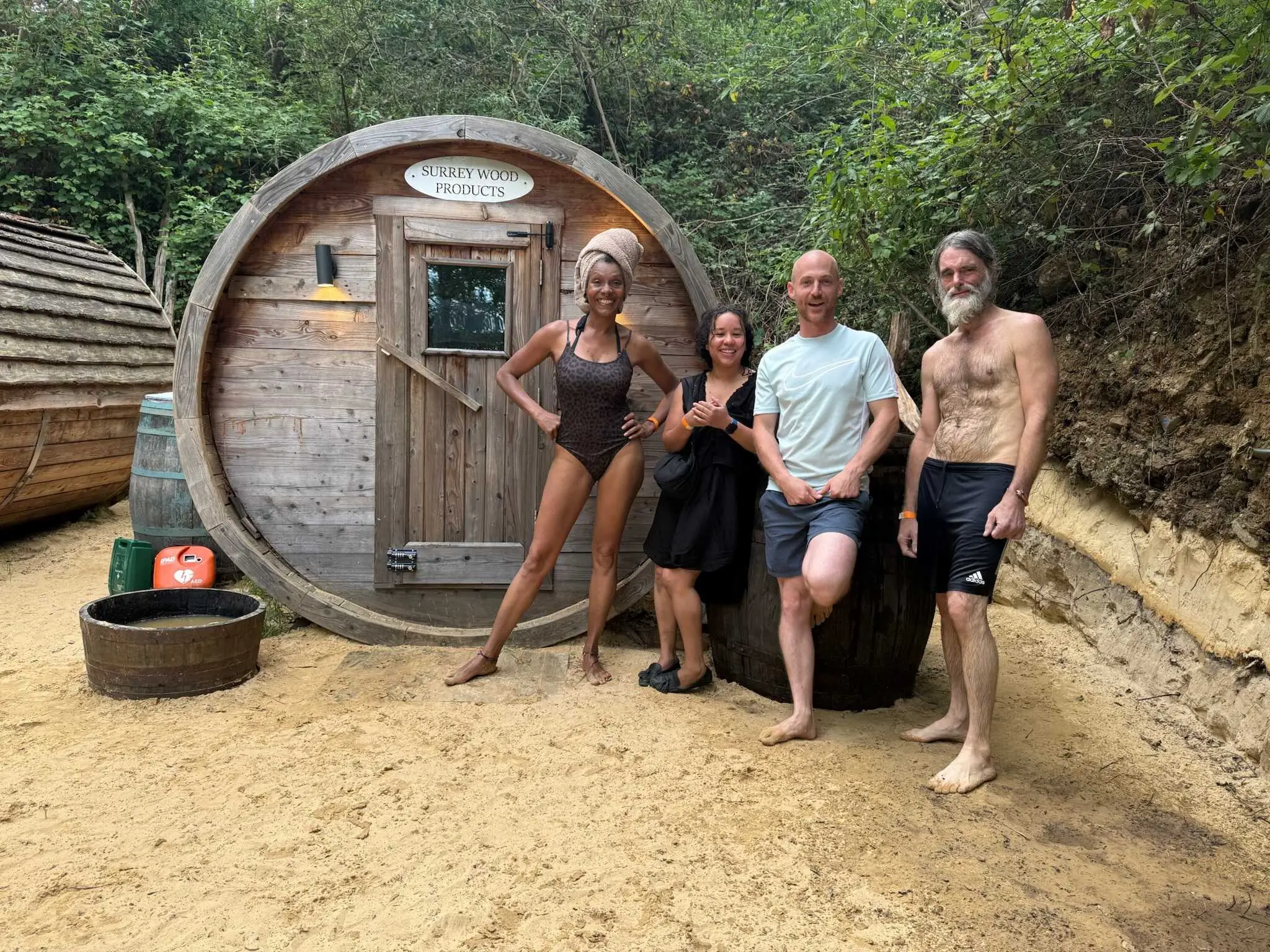A Beginner's Guide to Acclimatisation for Winter Swimming

As the air gets colder and the days get shorter, many swimmers start to pack away their goggles until spring. But for those who love regular open water swimming, this time of year is just the beginning of something really special.
Winter swimming offers a completely different experience - calmer, more mindful, and deeply rewarding. It’s not about endurance or competition, but connection: to your body, your breath, and the natural world. The key to enjoying it safely is acclimatisation, a gradual process that helps your body adapt to colder water.
We believe that anyone with a love for open water swimming can learn to enjoy cold water therapy safely and confidently, and actually grow to enjoy the initial shock of dipping in cold waters! So, if you’re thinking about taking the plunge this winter, here’s everything you need to know to begin your journey into winter swimming.
Is swimming in cold water good for you?
When practised safely, swimming in cold water can offer powerful benefits for both body and mind. It’s a form of cold water therapy that supports circulation, strengthens the immune system, and triggers a natural release of endorphins, leaving you feeling energised and calm.
The initial shock of cold water makes your heart beat faster and your body work harder to stay warm. Over time, this strengthens cardiovascular health and helps improve how your body regulates temperature. Regular swimmers also report better sleep, reduced stress, and a lasting sense of wellbeing.
Beyond the science, wild swimming in winter invites stillness. The water feels cleaner, the air clearer, and the moment more peaceful. It becomes a practice of focus and grounding, a chance to reconnect with yourself in nature’s quiet season.
How to start cold water swimming for beginners
If you’re new to wild swimming, the most important step is to start gradually. Your body needs time to adjust to cooler temperatures, and the best way to achieve this is by swimming regularly as the seasons shift.
At Divers Cove, we recommend continuing to swim as summer begins to cool, keeping up your sessions through September and early October. This steady routine allows your body to adapt naturally before the lake fully transitions into winter conditions when the temperature drops below 12°C.
You don’t need long or intense swims to acclimatise to cold water - shorter dips actually work best. Focus on breathing slowly, staying relaxed, and noticing how your body responds. With time, you’ll notice how each visit builds confidence.
For those looking to deepen their experience, our sauna sessions offer a beautiful way to enjoy contrast therapy. These sessions include dips in our lake, which you can enjoy in between times spent warming up in our handcrafted wooden sauna pods. The combination of cold and heat supports recovery, circulation, and overall balance.
Does your body adapt to cold water swimming?
Yes. With regular open water swimming, your body learns to respond more efficiently to the cold. Over time, your breathing steadies, your skin adjusts faster, and your tolerance improves. This process, known as cold adaptation, involves changes in circulation and metabolism that help your body conserve heat and recover more quickly.
Adaptation is as much mental as it is physical. The first swims may feel intense, but soon you’ll find calm in the cold. You start to trust the process, knowing that the initial shock will ease. Many swimmers describe this as a quiet form of resilience, a reminder that discomfort can lead to strength and clarity.
How long does it take to acclimate to cold water swimming?
There’s no fixed timeline for acclimatisation. Everyone’s body is different, and the process depends on how consistently and gently you expose yourself to the cold.
Starting in late summer and continuing through autumn is one of the best ways to prepare for winter swimming. Each session teaches your body how to manage temperature changes more effectively. By winter, the cold will still feel sharp but no longer overwhelming.
Consistency is key. Even a short weekly swim helps maintain adaptation. Skipping several weeks can make the next swim feel more difficult, so try to keep a rhythm that works for you. Remember, it’s not about staying in longer, it’s about returning regularly and listening to your body.
How long should you cold water swim?
When it comes to cold water therapy, short and steady is safest. In colder conditions, even experienced swimmers limit their time in the water.
A general guide is one minute per degree of water temperature, but this isn’t a target to reach. Many swimmers begin with just a couple of minutes, focusing on relaxed breathing and awareness. Over time, you’ll develop a sense of what feels comfortable.
Once you’re out, get changed into warm clothes straight away, including a hat and thick layers. Have a warm drink and allow your body to reheat gradually. This helps prevent afterdrop, the continued cooling that can occur after leaving cold water.
How to stay safe wild swimming in winter
Safety is at the heart of everything we do at Divers Cove. Winter swimming can be incredibly rewarding, but it must always be approached with care.
Always swim in a familiar, supervised location. At Divers Cove, lifeguards are present at every session and trained in cold water safety. Swim with others where possible, or let someone know when you’ll be in the water.
Before entering, take a few moments to focus on your breath. Step in slowly to give your body time to adjust. Avoid diving or submerging your head straight away, as this increases heat loss. Keep your swim short and steady, and always leave the water before you feel too cold.
After your swim, warm up gradually and listen to your body. The goal is to finish feeling refreshed, not drained. Cold water swimming should leave you energised and grounded, not exhausted.
Why acclimatisation matters
Acclimatisation isn’t just about temperature, it’s about awareness. Each swim teaches you how to breathe, respond, and recover. It helps you become more attuned to your body, building patience and confidence along the way.
This process transforms cold water swimming into something far deeper than a physical activity. It becomes a mindful practice, strengthening not just your resilience but your appreciation of calm and stillness.
At Divers Cove, we see acclimatisation as a way to reconnect with nature’s rhythm. The changing seasons, the shifting light, and the feel of cold water all remind us that adaptation is part of being human.
Try winter swimming at Divers Cove
If you’ve ever wondered what open water swimming feels like in the winter, there’s no better place to begin than Divers Cove. Our peaceful lake in Surrey offers the perfect setting for safe, supported swims throughout the colder months.
Whether you’re a beginner looking to explore cold water therapy or an experienced wild swimming enthusiast continuing your seasonal routine, our lifeguarded sessions provide the space, safety, and support you need.
We encourage swimmers to keep visiting as the weather cools, allowing their bodies to adapt naturally over time. Many find that by the time winter fully arrives, they’ve built a lasting connection to the water that continues year after year.
Book your next swim at Divers Cove today, and experience the calm, clarity, and quiet strength that comes from embracing the cold.

Why Bacon Baps and Post-Swim Chats Are Good for the Soul

The Best Pre-and Post-Dip Snacks for Energy and Recovery

A Beginner's Guide to Acclimatisation for Winter Swimming

